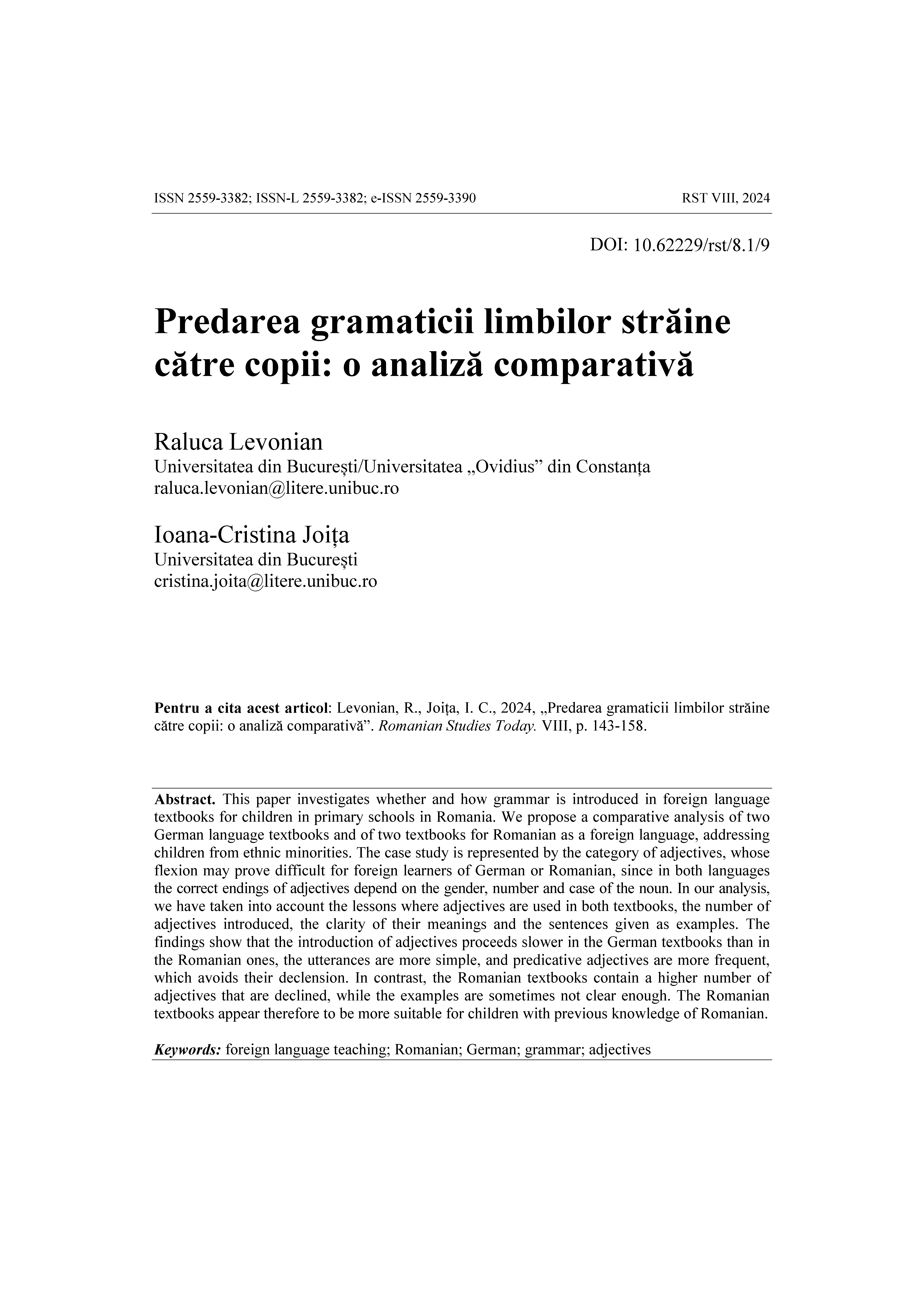Predarea gramaticii limbilor străine către copii: o analiză comparativă
DOI:
https://doi.org/10.62229/rst/8.1/9Keywords:
foreign language teaching, Romanian, German, grammar, adjectivesAbstract
This paper investigates whether and how grammar is introduced in foreign language textbooks for children in primary schools in Romania. We propose a comparative analysis of two German language textbooks and of two textbooks for Romanian as a foreign language, addressing children from ethnic minorities. The case study is represented by the category of adjectives, whose flexion may prove difficult for foreign learners of German or Romanian, since in both languages the correct endings of adjectives depend on the gender, number and case of the noun. In our analysis, we have taken into account the lessons where adjectives are used in both textbooks, the number of adjectives introduced, the clarity of their meanings and the sentences given as examples. The
findings show that the introduction of adjectives proceeds slower in the German textbooks than in the Romanian ones, the utterances are more simple, and predicative adjectives are more frequent, which avoids their declension. In contrast, the Romanian textbooks contain a higher number of adjectives that are declined, while the examples are sometimes not clear enough. The Romanian textbooks appear therefore to be more suitable for children with previous knowledge of Romanian.





